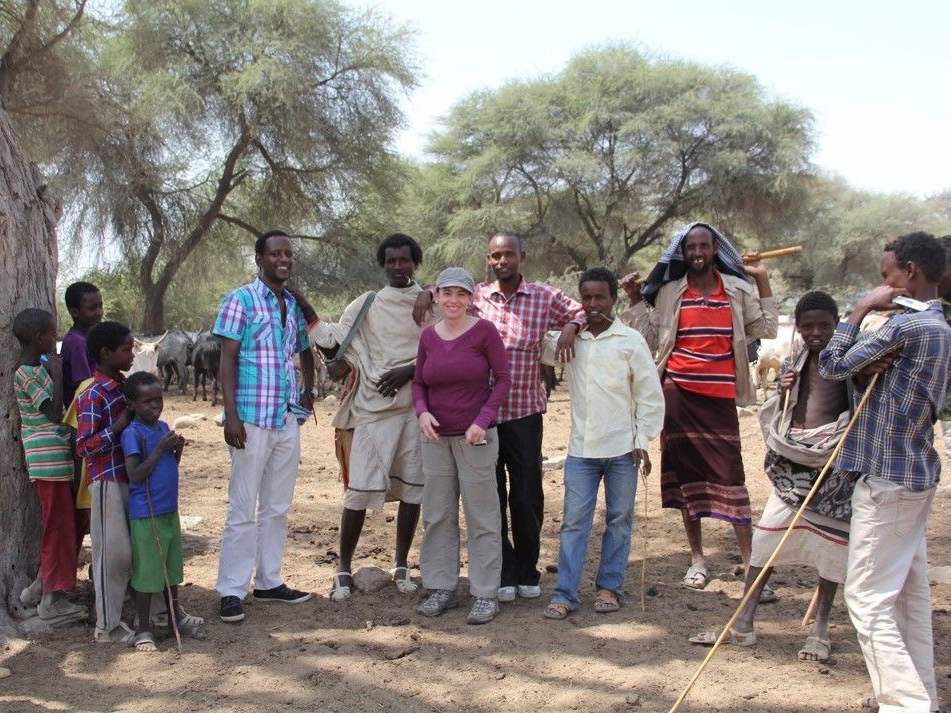VMBS Faculty Member Awarded Scialog Fellowship To Develop New Diagnostic Tests For Brucellosis

Dr. Angela Arenas, a Texas A&M University associate professor in the School of Veterinary Medicine & Biomedical Sciences and the School of Medicine, was awarded one of 18 Scialog: Mitigating Zoonotic Threats fellowships to aid in her development of new and improved diagnostic tests for brucellosis, a bacterial disease that can affect humans, pets, and livestock.
Arenas will use the $50,000 award to develop and test highly innovative, and if successful, transformative methods for improving diagnostic testing solutions for the detection of infectious diseases of pets and livestock.
“I am passionate, committed, and very hopeful that our work will help animals all over the world,” Arenas said. “As a veterinarian and animal enthusiast, I am proud of what we are doing.”
Arenas’ laboratory at Texas A&M is committed to eliminating brucellosis, a bacterial disease that affects millions of people and animals globally, through research, education, and outreach. She said the Scialog fellowship will help further her lab’s efforts.
In addition to providing monetary support, Arenas said the Scialog: Mitigating Zoonotic Threats initiative has opened the door to collaborations and connections she wouldn’t have been able to make without the program.
Created in 2010, Scialog is short for “science + dialog” and aims to support research by stimulating intensive interdisciplinary conversation and community building around a scientific theme of global importance. Teams of two to three fellows who have not previously collaborated compete for seed funding for high-risk, high-reward projects based on the ideas they develop at an annual conference.
At the 2023 conference, participants developed research ideas to bridge their different expertise, methods and technologies in new ways to advance basic science in the detection and mitigation of existing and emerging zoonotic threats, such as brucellosis. On the final day of the conference, teams pitched their proposals for collaborative projects, and Arenas’ project was selected to receive support in the form of a Scialog fellowship.

“The program makes you talk to people you wouldn’t normally talk to,” Arenas said. “Together, you come up with solutions that might be crazy, but with the right expertise in the conversation, those solutions suddenly seem achievable. Having the opportunity to collaborate, exchange knowledge, and have an impact for animal health is huge.”
In her Scialog fellowship, Arenas will work with Dr. Nicholas Wu, from the University of Illinois at Urbana-Champaign, and Dr. Crystal Reid, with Center for Veterinary Biologics in the United States Department of Agriculture. Together, the team aims to improve diagnostic accuracy using protein engineering.
“Being a Scialog fellow is something that I will always be proud of. It is an honor,” Arenas said. “The award indicates that the program believes in our ideas and is willing to support us in moving them forward.”
The Scialog: Mitigating Zoonotic Threats fellowships are awarded by Research Corporation for Science Advancement and the U.S. Department of Agriculture with the goal of launching new research in the detection and mitigation of emerging animal-borne infectious diseases.
###
For more information about the Texas A&M School of Veterinary Medicine & Biomedical Sciences, please visit our website at vetmed.tamu.edu or join us on Facebook, Instagram, and Twitter.
Contact Information: Jennifer Gauntt, Director of VMBS Communications, Texas A&M School of Veterinary Medicine & Biomedical Sciences, jgauntt@cvm.tamu.edu, 979-862-4216


